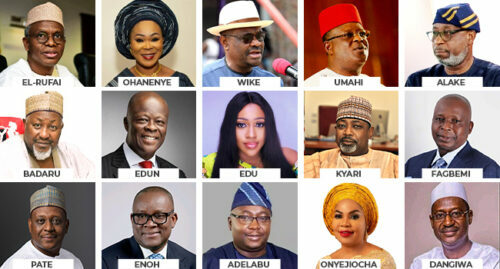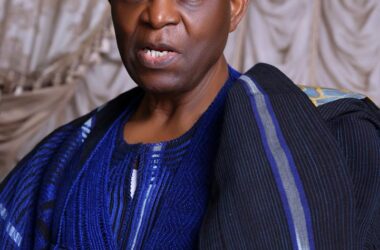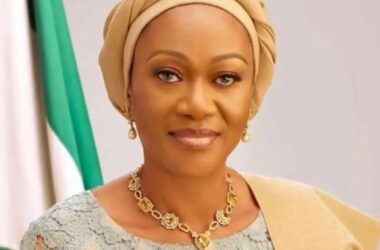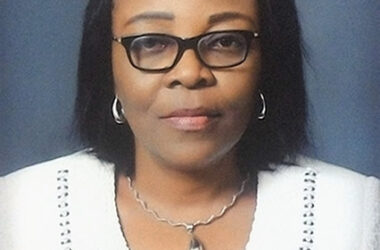There are at least two long-standing traditions as far as nomination for ministerial appointments in Nigeria is concerned. Since 1999, every President of Nigeria (including the incumbent, Asiwaju Bola Ahmed Tinubu) has adhered to these two traditions. One can be described as positive, based on the intentions behind it; the other, less so.
The Constitution of the Federal Republic of Nigeria mandates the President to nominate at least one minister from each of the 36 states of the country. This provision is supposed to engender inclusion in the national scheme of things, and give each constituent part of the country a sense of belonging. Based on that motive, this can be said to be a positive.
The second tradition is that of submitting the names of ministerial nominees to the Senate for screening and confirmation – WITHOUT designating exactly which ministry they are being assigned to, a situation which makes it impossible for the legislators to question said nominees on their competencies regarding the area they are to oversee, and their position regarding current events, topical issues and emerging trends in the field in question. Whatever the motive behind this practice (which has few, if any, parallels elsewhere in the world) it has, in the past, given rise to a preponderance of ‘square pegs in round holes’; ministers who spend an inordinate amount of time learning on the job and trying to get to grips with the rudimentary fundamentals of their assignment.
Of course there is no law that says a would-be minister must be an expert in his or her area of designation. Some appointments, we know, are meant to fulfil political obligations, to pay a debt, to reward loyalty, to grant a favour, or to make a grand gesture, etc. What the appointee does with his portfolio eventually determines whether or not the gesture has been worth it.
At the beginning of a new administration, and the appointment of ministers, therefore, analysts and observers tend to rate them in three basic categories, namely, The Good, The Bad and The Ugly. The Good, of course, are those whose designated portfolios align with their pedigree and records of previous service whether in the public or private sectors. The Bad are a mismatch in terms of their area of expertise and previous work. The Ugly are so rated, not necessarily because of their qualifications or lack thereof, but solely because of their antecedents. It is entirely possible, of course, for those in the last group (ie The Ugly) to prove the doubters, cynics and critics wrong in the long run. But there is little guarantee that they will do so, to the satisfaction of the generality of Nigerians – no thanks to said antecedents.
But for the purpose of this discussion, this piece will focus on the Good i.e. those who not only came to the proverbial table with the requisite credentials for their portfolios, but are already out of the starting-blocks. It’s early days yet, one may say, but if morning shows the day, as the old saying goes, then the signs are highly encouraging.
His Excellency, Senator Dave Umahi is one of them. An engineer by training, he was the Governor of Ebonyi State from 2015 to 2023. Until his current appointment, he was the Deputy Senate Leader, having been elected Senator for Ebonyi South on the platform of the All Progressives Congress (APC). His designation as Minister of Works seems to be the President’s way of recognizing Umahi’s landmark achievements in transforming the infrastructural landscape of Ebonyi State, notably in the areas of urban renewal and quality road networks across the state. He is already bringing his professional knowledge and practice to bear on the discharge of his responsibilities.
Mr. Olawale Edun is another minister in this category. His designation was correctly called by almost all public commentators. The seeming inevitability of this prediction was premised on his academic and public service credentials, coupled with the fact that Edun was also Asiwaju Tinubu’s finance commissioner when the latter was Lagos State Governor. The minister has a rich background in economics, international finance, merchant banking and corporate finance in reputable organisations in Nigeria and internationally. He also holds the portfolio of the Coordinating Minister of the Economy, a position last held by Dr. Ngozi Okonjo-Iweala (now the director-general of the World Trade Organisation). From his engagements so far, Edun has already demonstrated the understanding that he, of all the ministers, would be constantly on the public radar because whatever policies and reforms he initiates will automatically impact the fiscal regime of the government as far as stabilising the naira, managing the country’s burgeoning debt profile, growing the country’s foreign reserves, and diversifying the economy, are concerned. Most industry players familiar with the Lagos financial ecosystem agree that Edun’s time as commissioner for finance there was a success as he initiated reforms that boosted the revenue generation capacity of the state, blocked loopholes and leakages, and improved the ease of doing business in the state. There is, therefore, widespread confidence that he will replicate that success in Abuja.
The deployment of Dr. Muhammad Ali Pate as the Coordinating Minister of Health and Social Welfare was not only predicted, but actively advocated for by influential stakeholders who were confident that he would also be a round peg in a round hole. Until lately the CEO of Gavi Alliance (an international organisation created in 2000 to improve access to new and under-used vaccines for children living in the world’s poorest countries), Dr. Pate is an internationally renowned academic and public health expert. The minister, who hails from Bauchi State, was the Minister of State in the same ministry from 2011 to 2013 when he resigned to take up the position of Professor at Duke University’s Global Health Institute in the USA. With his multiple competencies in internal medicine, infectious diseases and public health, Dr. Pate is expected to rejig the country’s ailing health system to meet the needs of Nigerians.
Assigning Nyesom Ezenwo Wike to the Ministry of the Federal Capital Territory was arguably one of President Tinubu’s most compelling statements of intent, as far as moving the needle of national development (and especially the restoration of Abuja) is concerned. Some commentators have gone as far as calling it a masterstroke. It certainly confirms the seriousness of Mr. President’s pledge, from when he was still President-elect, to set up a ‘government of national competence.’ To be sure, Wike is a chieftain of the opposition People’s Democratic Party (PDP), who has in the recent past been a thorn in the flesh of the ruling All Progressives Congress (APC). Though his appointment can be rightly seen as a reward for his role in helping Candidate Tinubu win Rivers State in last February’s presidential elections, Wike has, since his deployment, taken to his duties like a fish to water. His reputation for courting controversy aside, he is widely admired as a no-nonsense public administrator who is already making his presence felt in the affairs of the capital city. Nicknamed ‘Mr Projects’ back in Rivers State on account pf his hands-on approach to governance, Wike is credited with bringing relative stability to Port Harcourt, the state capital, by keeping criminals and cultists at bay, as well as curbing street teen prostitution. Long known as ‘the Garden City’ but hardly living up to the name in the past, Port Harcourt wears a new look these days, courtesy of the infrastructural developments embarked upon by the Wike administration. He is expected to replicate the same urban renewal in the FCT, and reverse the inertia and neglect Abuja has suffered in recent years.
Another minister that falls in among the Good (per our aforementioned criteria) is the Minister of the Interior, Hon. Olubunmi Tunji-Ojo. A trained engineer, the 41-year old Tunji-Ojo holds degrees in Electrical and Electronic Engineering, Electronics and Communications, and Digital Communications and Networking from institutions in Nigeria and the United Kingdom. A digital prodigy, he holds certifications in 18 professional qualifications in ICT. Until his appointment as minister, Tunji-Ojo was a federal legislator, having been elected in 2019 into the House of Representatives to represent Akoko North East/Akoko North West Federal Constituency of Ondo State on the platform of the All Progressives Congress (APC). Already, his emphasis on greater synergy amongst the departments and agencies on one hand, and between the Ministry of the Interior and that of Communications and Digital Economy (headed by another digital firebrand, Dr. Bosun Tijani) is bearing some fruit. Perhaps this informs the recent decision by the Presidency to move the National Identity Management Commission (NIMC) from the latter ministry to Interior, so as to enable the agency to benefit more fully from Hon. Tunji-Ojo’s expertise and administrative abilities.
In an administration with an unprecedented preponderance of young ministers, Dr. Betty Chimaobi Edu is by far the youngest, at 36 years of age. Her youth, however, belies her exposure, experience and political skills. Born in October 1986, she is currently the Minister of Humanitarian Affairs and Poverty Alleviation. Before her appointment by President Tinubu, she was the national women leader of the ruling All Progressives Congress (APC). A native of Cross River State, she served as Commissioner for Health in that state from 2019 to 2022 (during which time she was also the national Chairman of the Nigerian Health Commissioners Forum). A trained medical doctor, she obtained a first degree in Medicine and Surgery from the University of Calabar, and a master’s degree in Public Health in Developing Countries from the London School of Hygiene & Tropical Medicine. She earned the degree of Doctor of Public Health from Texila American University. As if in anticipation of her appointment to head a ministry whose mission is to develop humanitarian policies and provide effective coordination of national and international humanitarian interventions, Dr. Edu was in July this year presented with an Award of Excellence in Leadership by the Maryam Babangida National Center For Women Development, in collaboration with the Ministry of Women Affairs and Social Development, in recognition of her commitment to championing the cause of gender inclusion, and for the empowerment of women, children, and other vulnerable groups in Nigeria. From her engagements so far as minister, there’s no doubting her passion in this regard.
By the criteria set forth at the beginning of this article (as to the distinction between the Good, the Bad and the Ugly), Dele Alake would appear to fall in among the Bad, ie those ministers with zero prior experience in their designated ministry (in his case, Solid Minerals Development). Most analysts and commentators would be forgiven for thinking that Alake was sure to head the Information Ministry, based on his impressive background in the media. A veteran newspaperman in addition to his considerable public sector experience, he was Tinubu’s Commissioner for Information and Strategy back in Lagos State. Originally from Ekiti State, he acted as spokesperson to the President on his assumption of office; it was a job he did with considerable aplomb – providing a contrast to the abrasive style of one of his predecessors, Garba Shehu. Even the Senators who screened him (thinking he was headed for Information) asked him questions mostly related to that sector. However, since his assumption of duties at the Ministry of Solid Minerals Development, he has silenced the criticism and allayed doubts about how he was going to navigate this unfamiliar terrain. Thanks to his people skills (coupled with the fact that, in journalism, you tend to know a little bit about everything) Alake has leaned on technical experts in the Ministry for critical advice, even as he provides political leadership and administrative guidance in tune with the vision and mission of the President. Mr Alake has shown that he is aware of the administration’s mandate to develop the solid minerals sector as a veritable source of revenue and employment generation for the country and its teeming youths.






